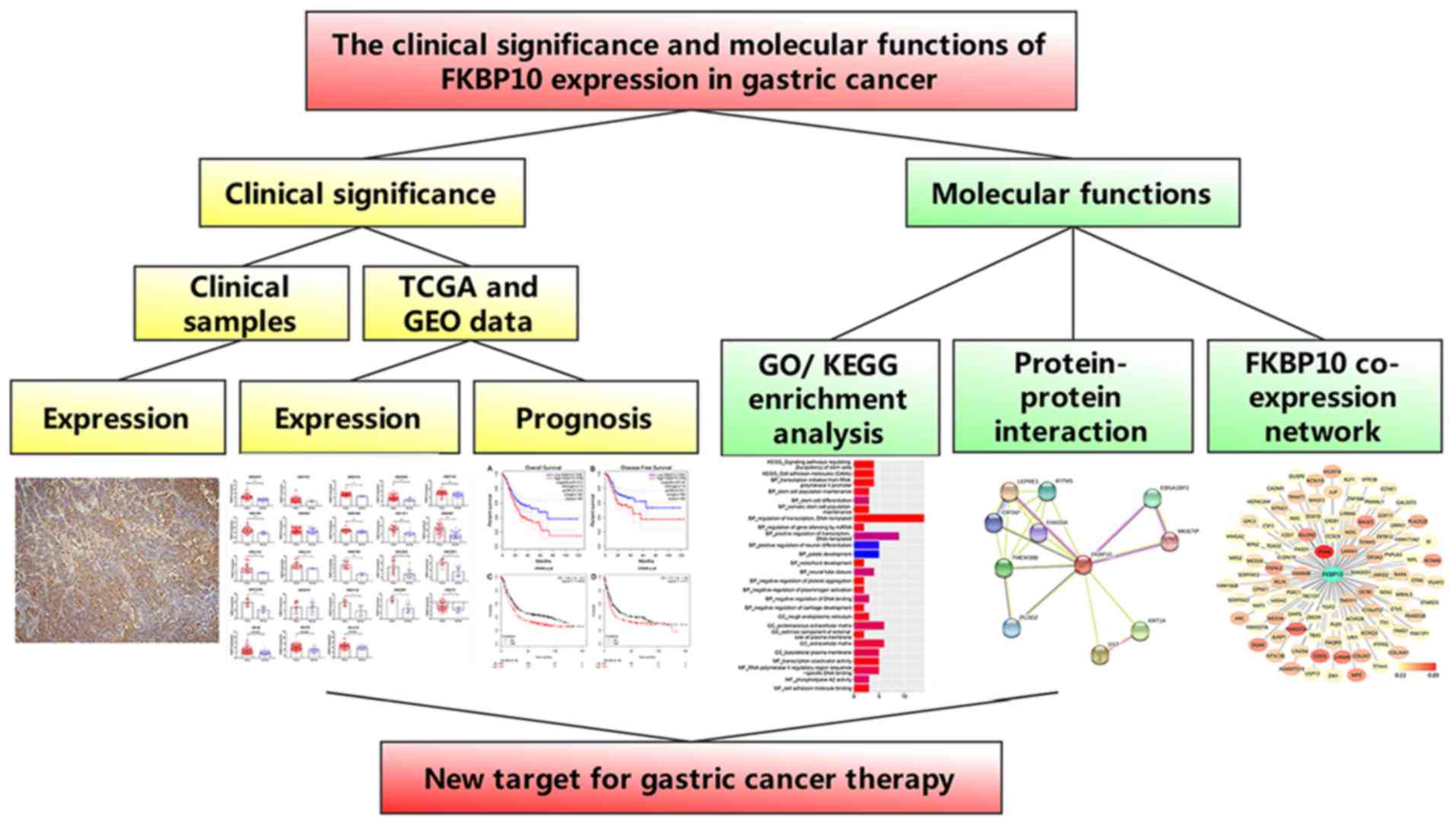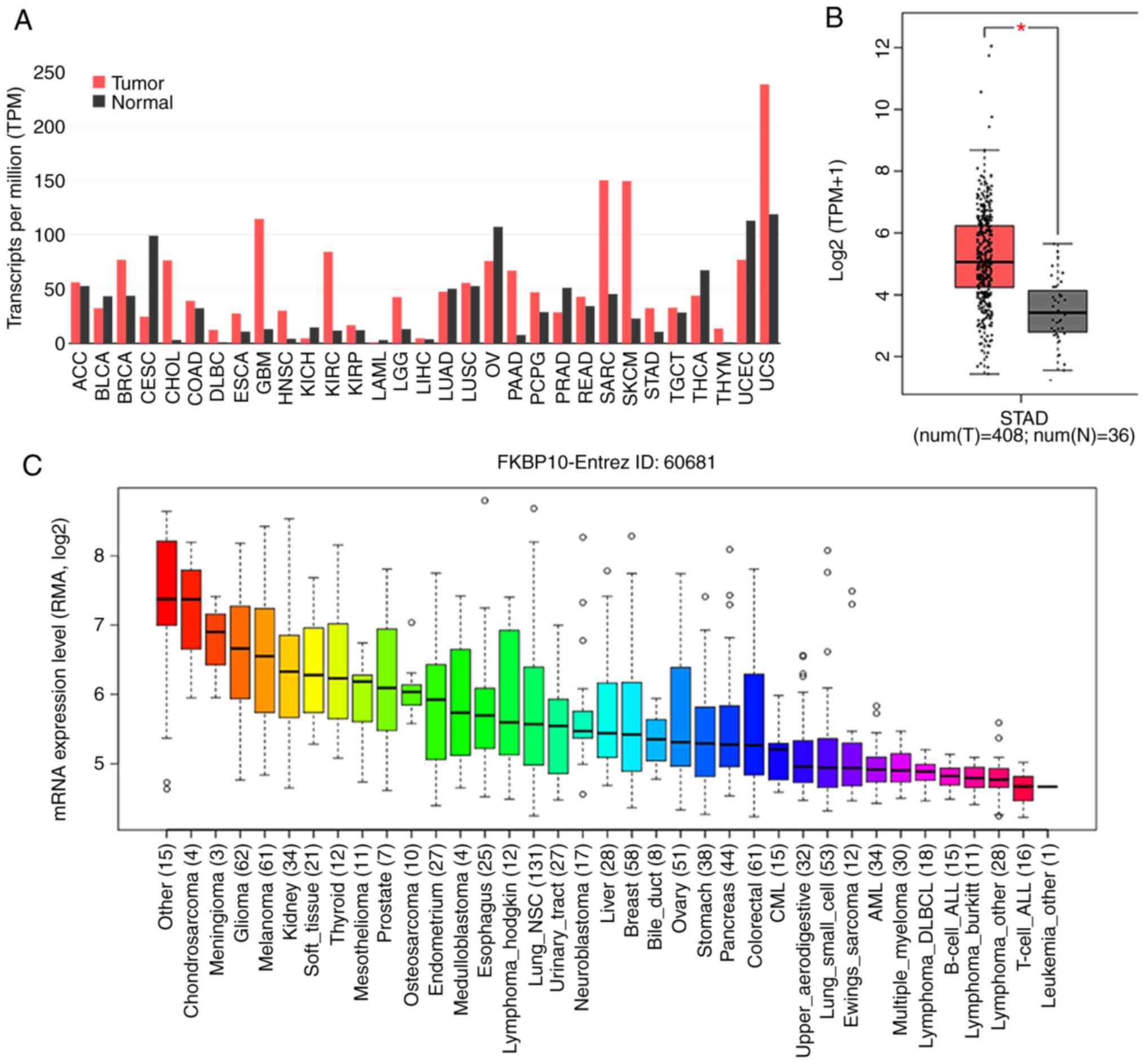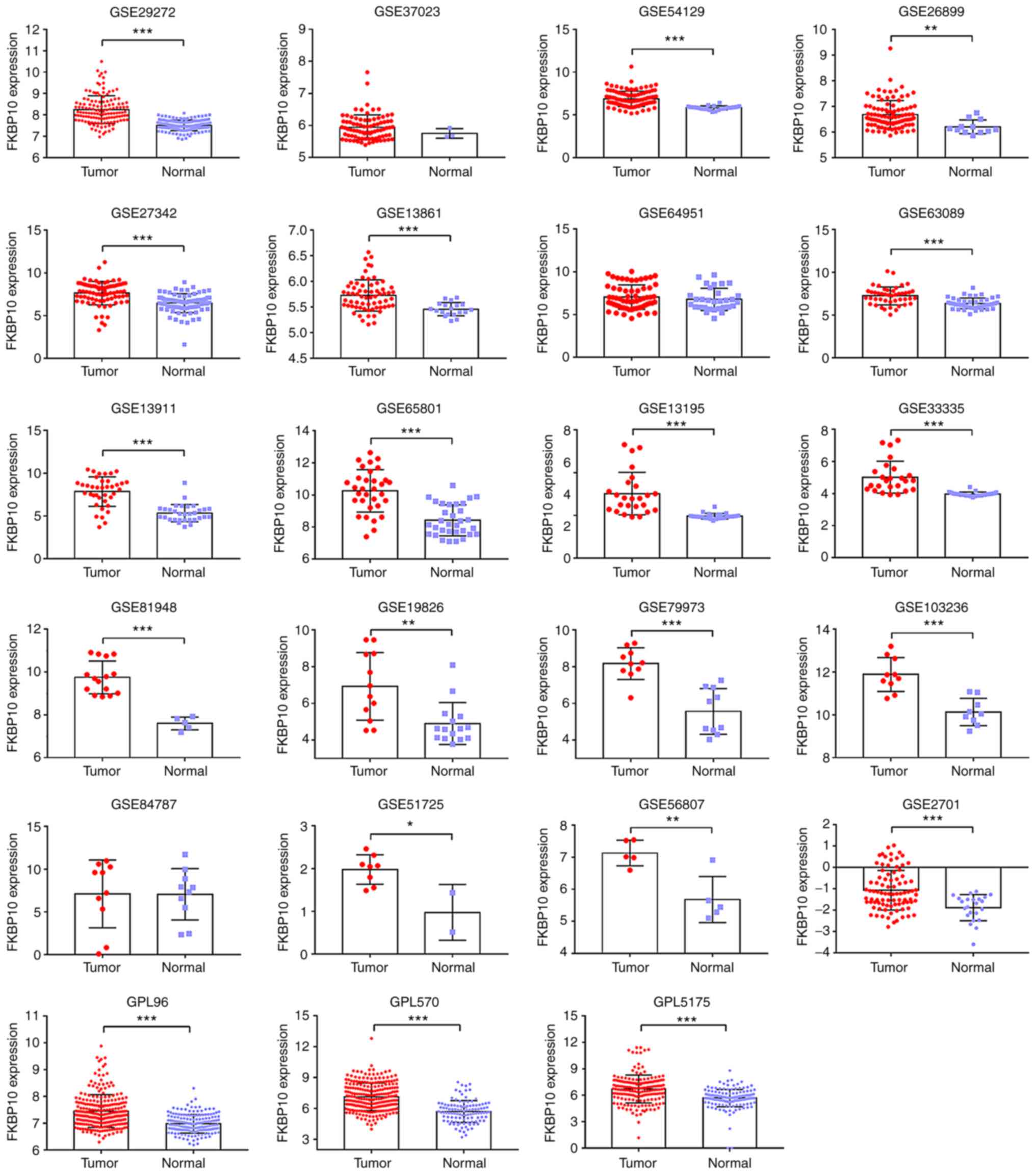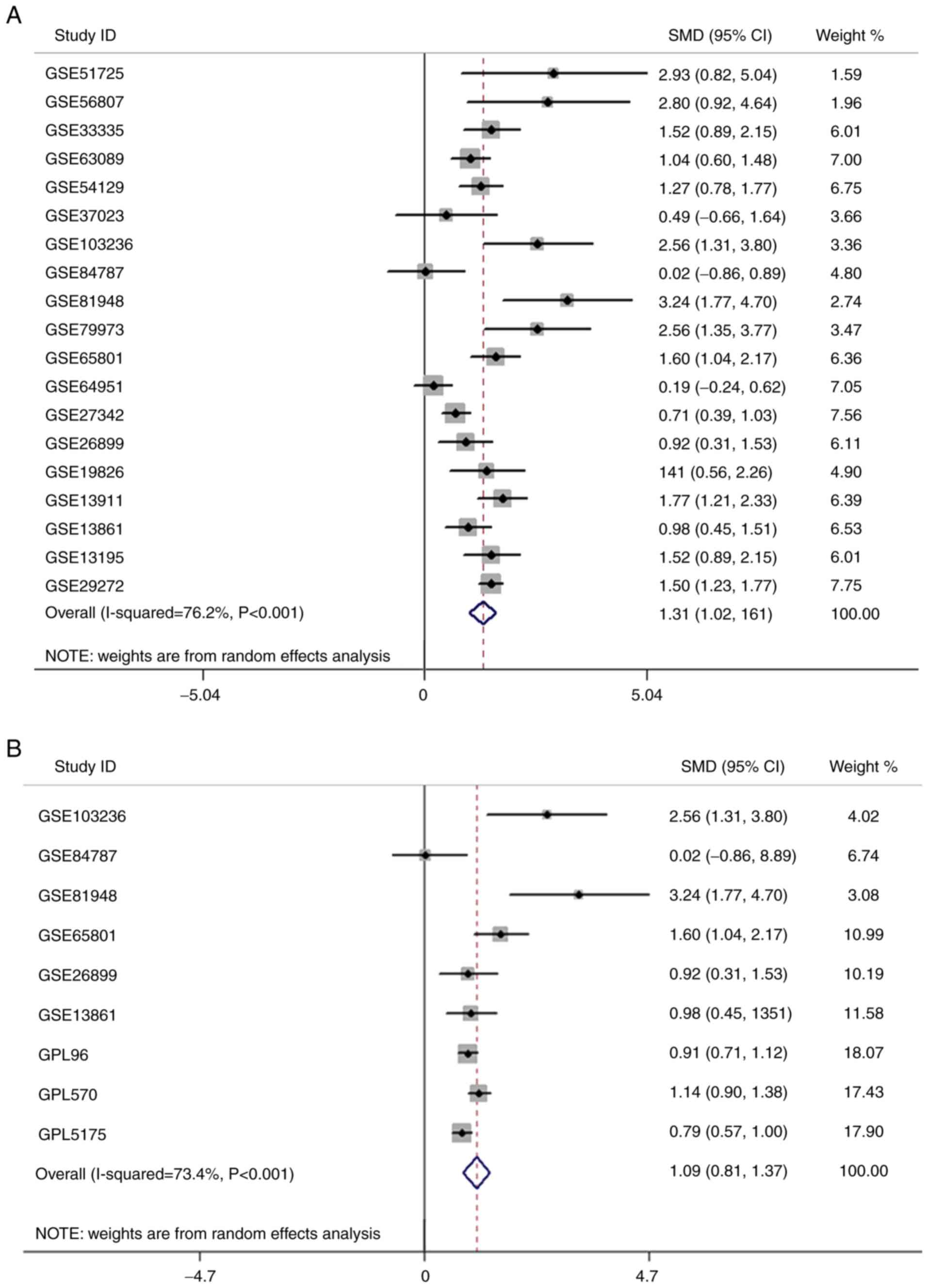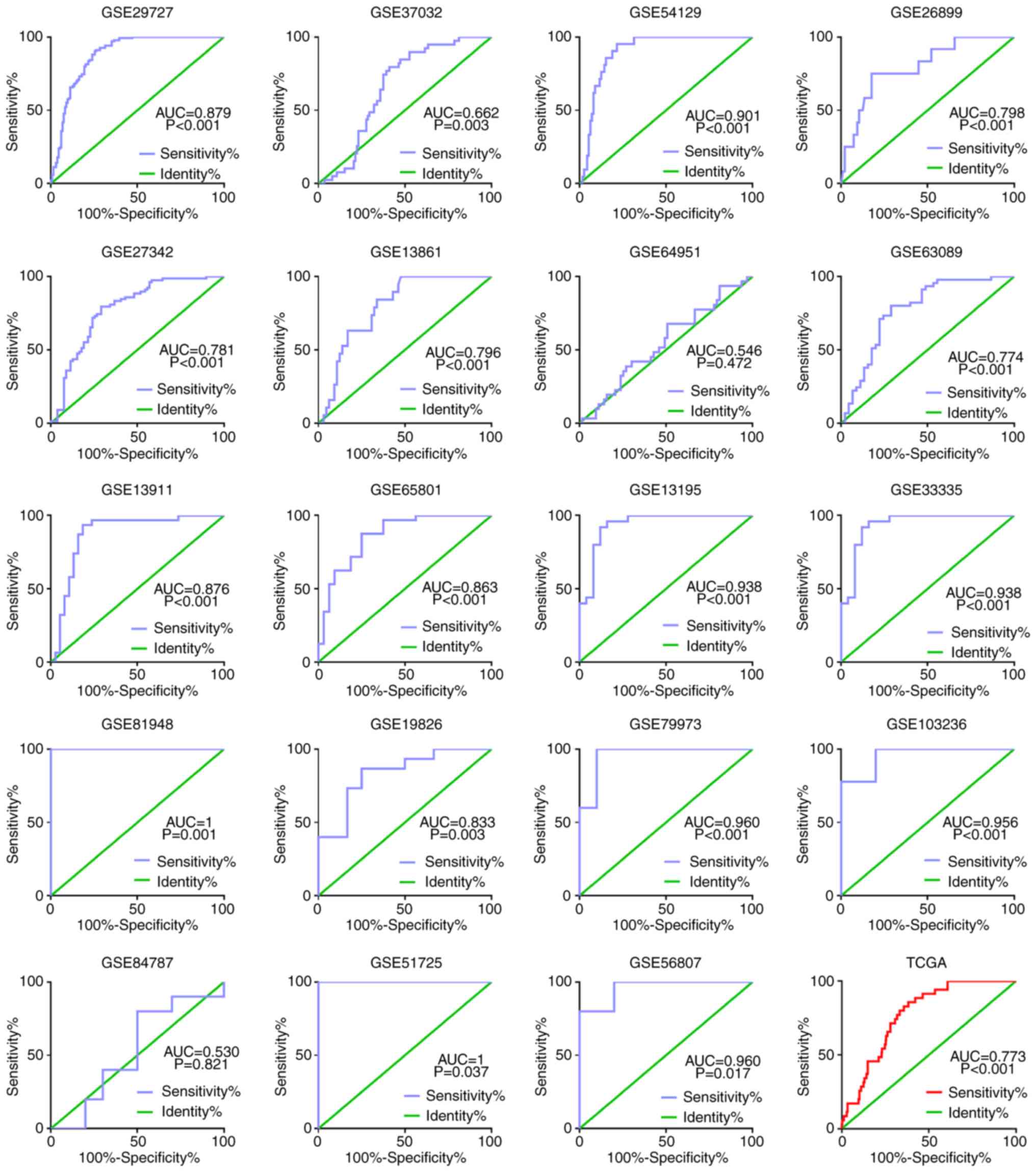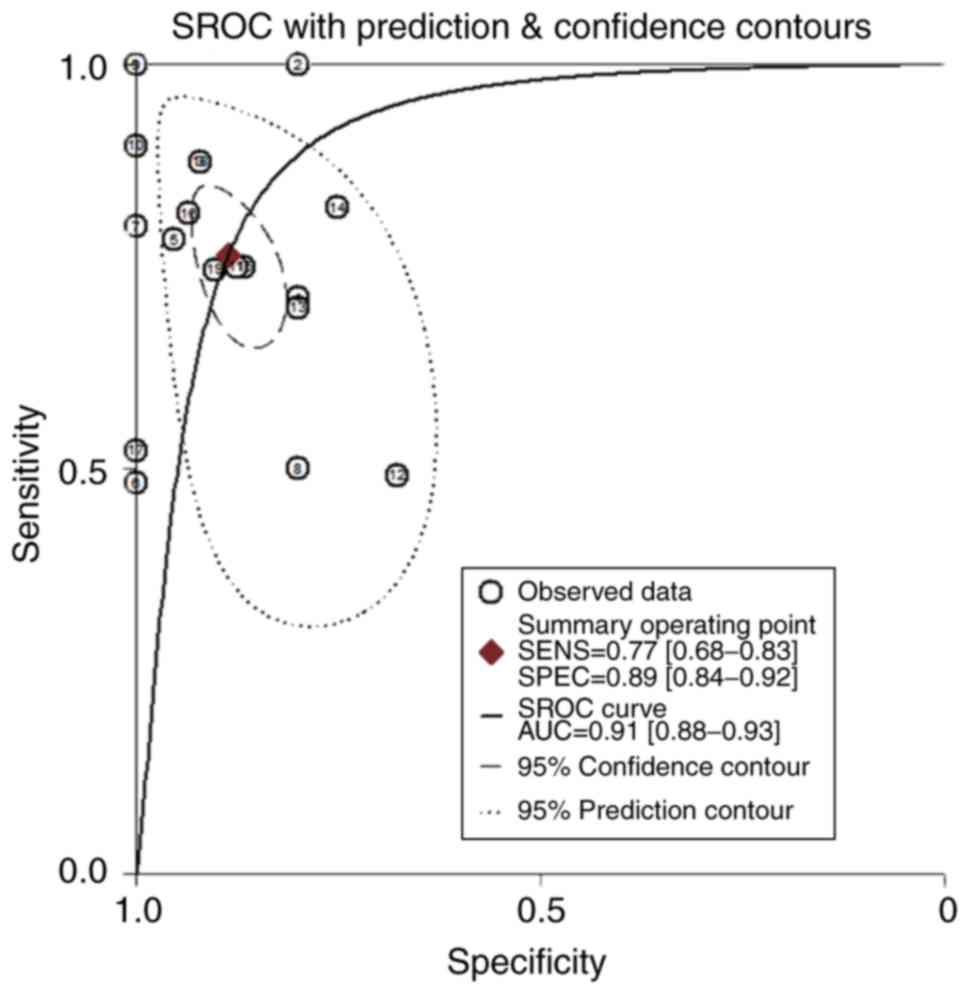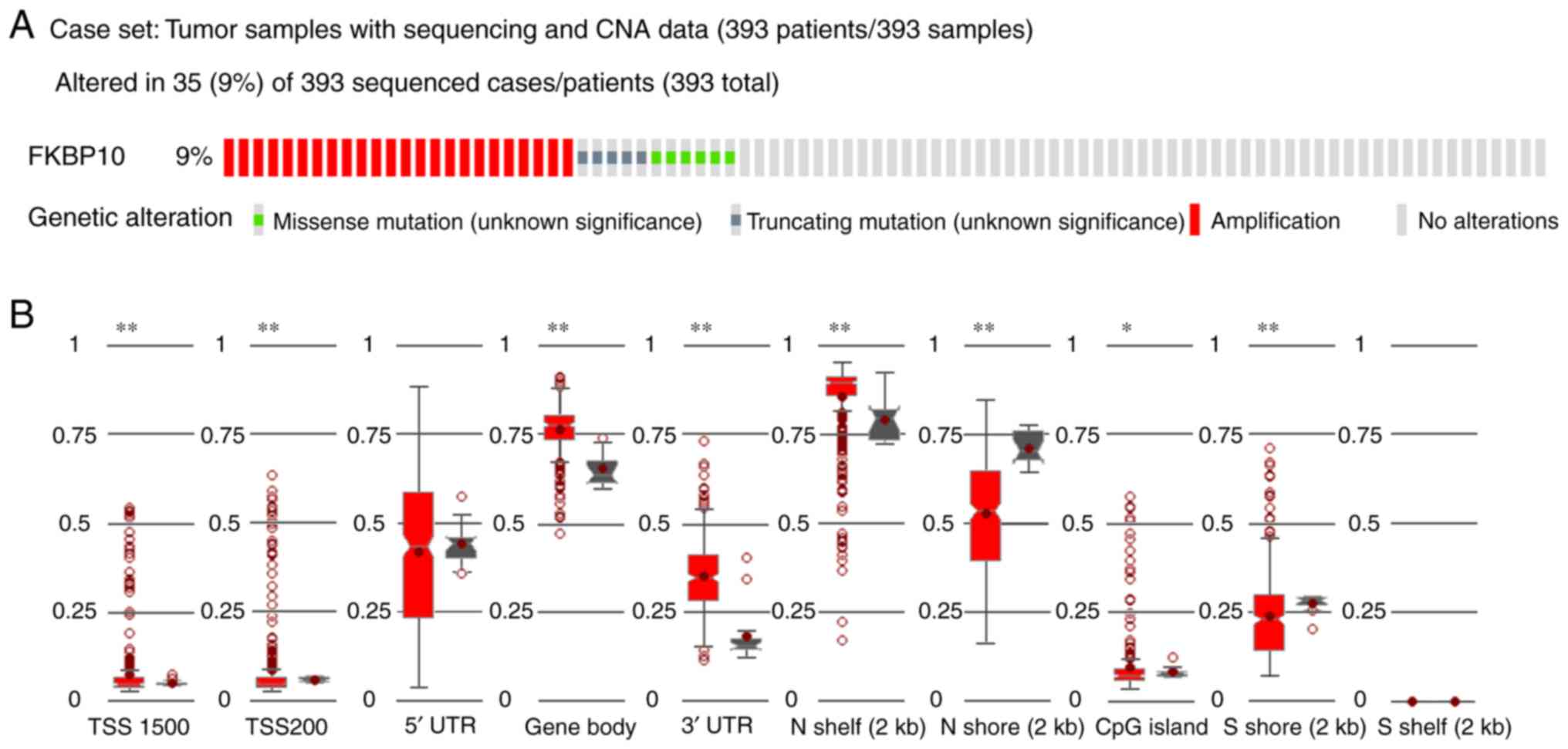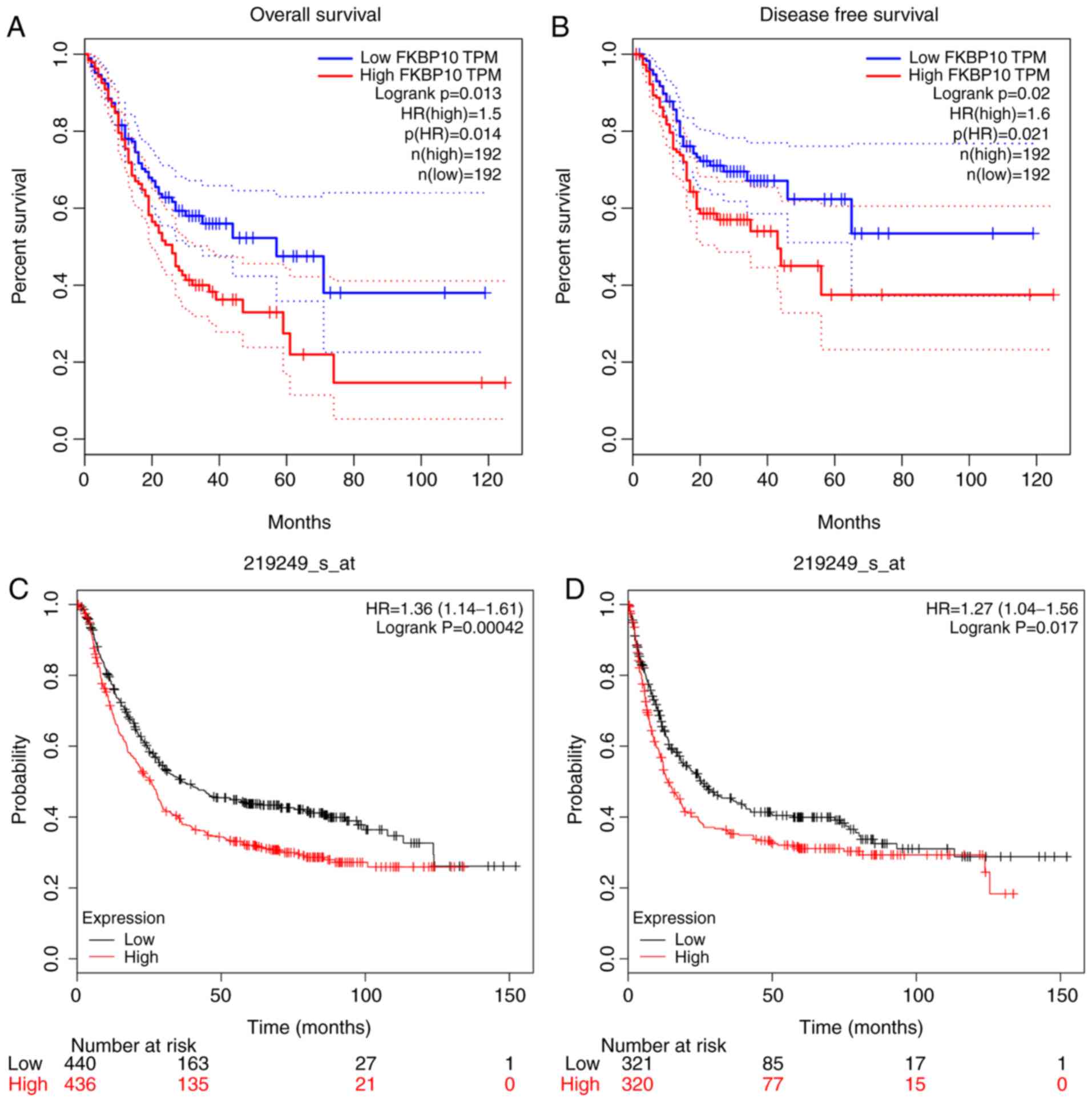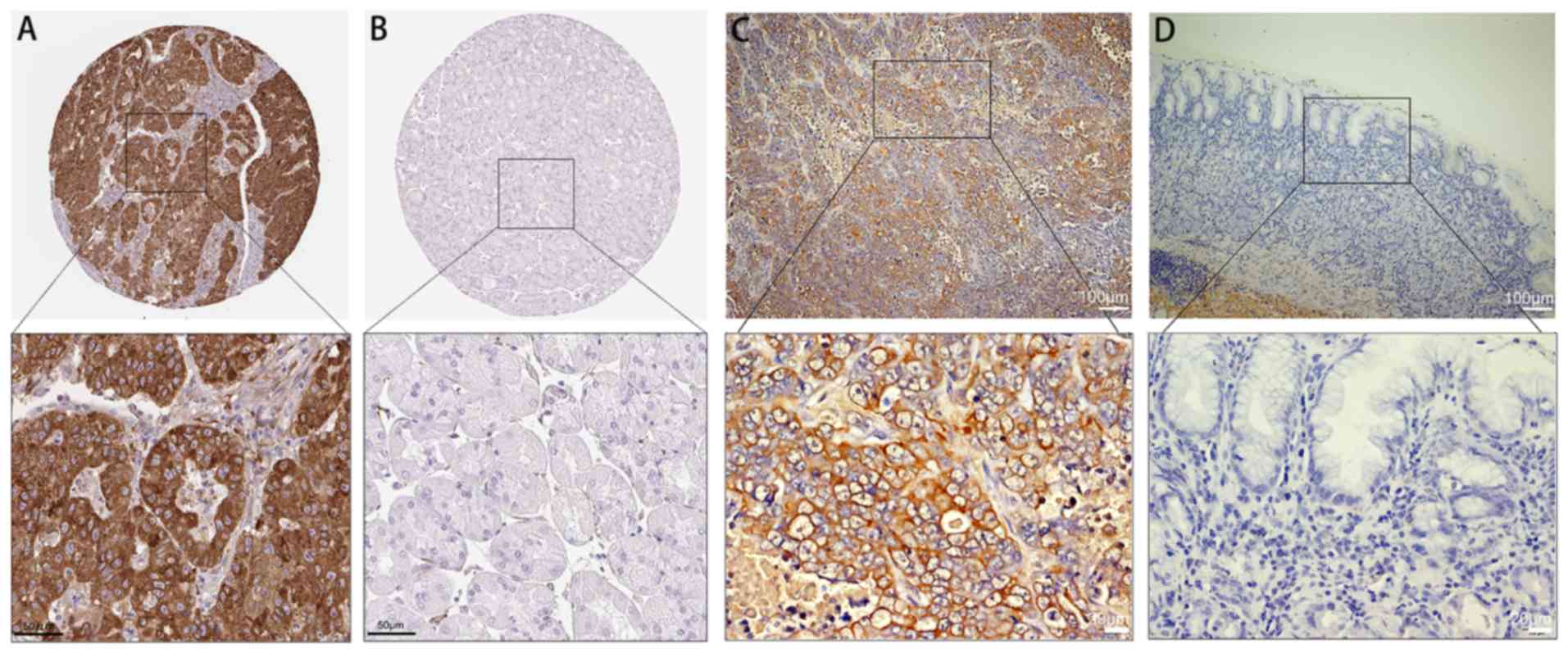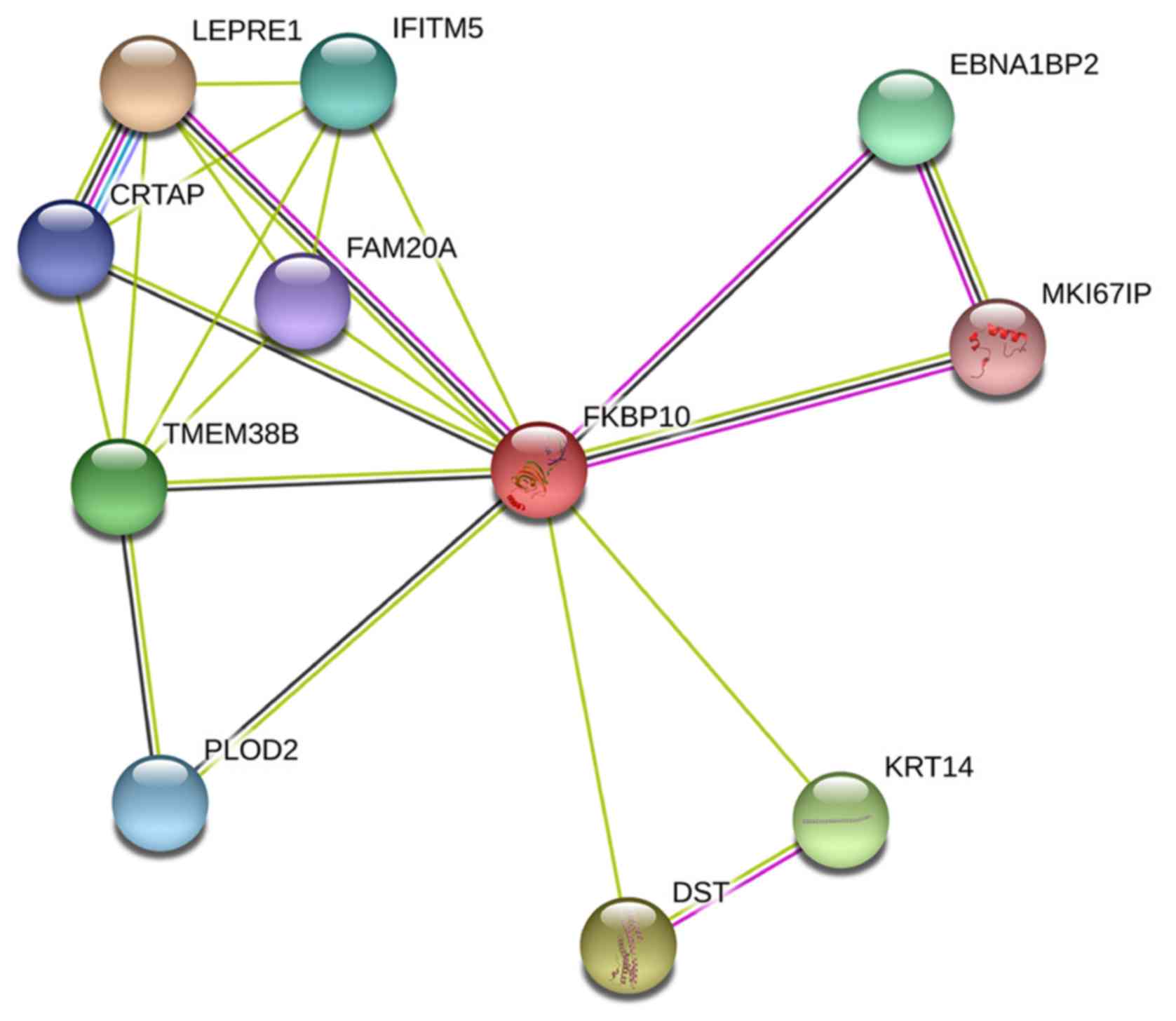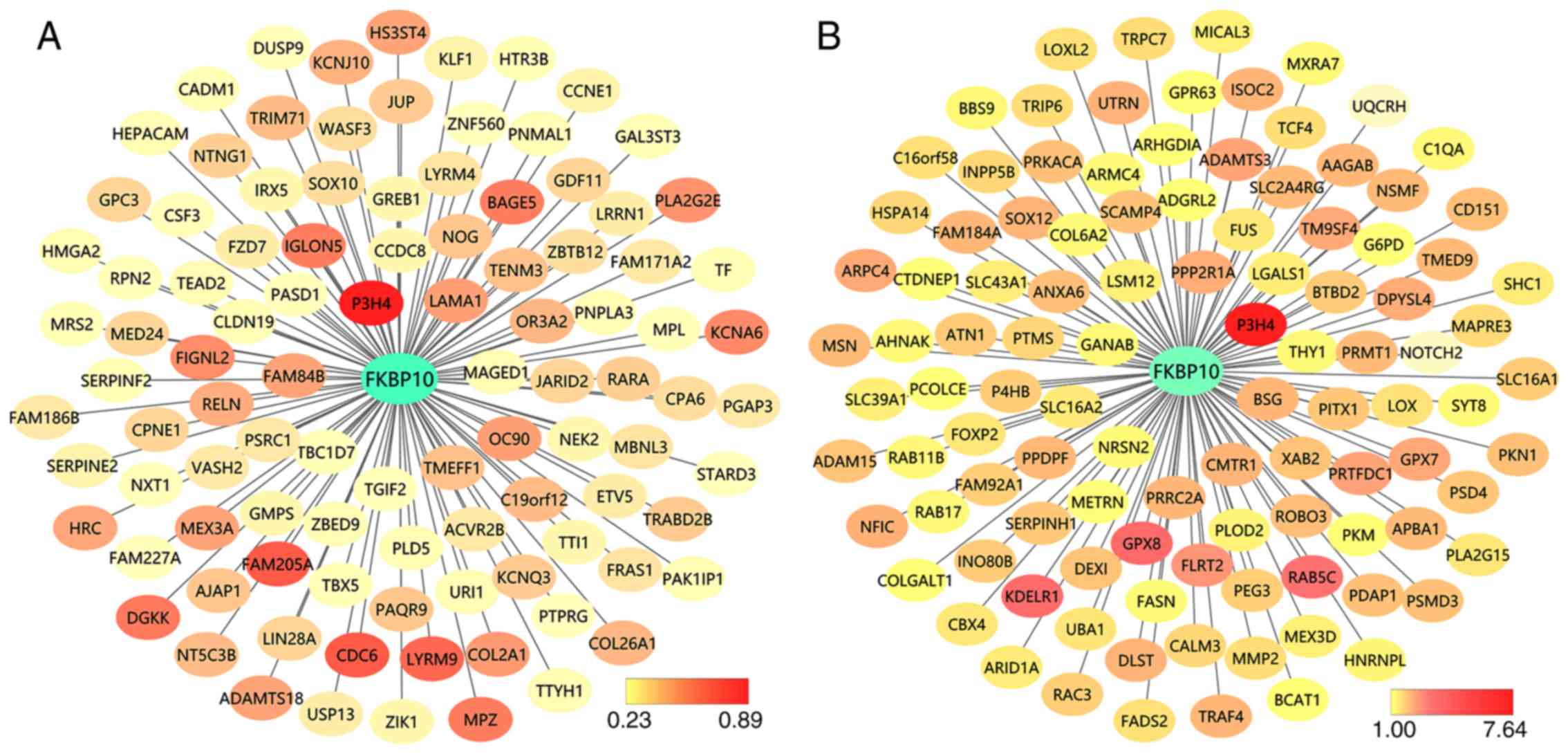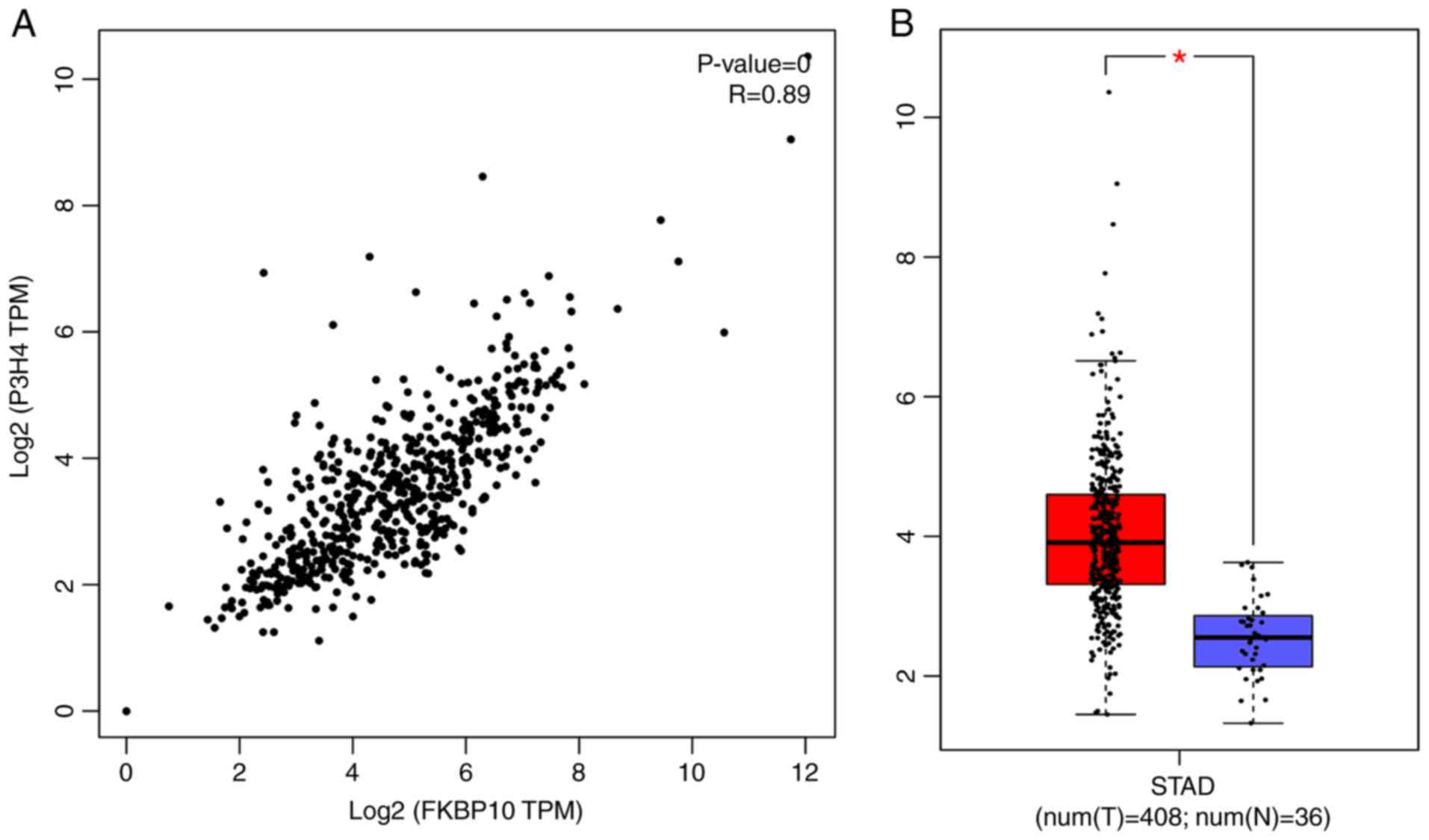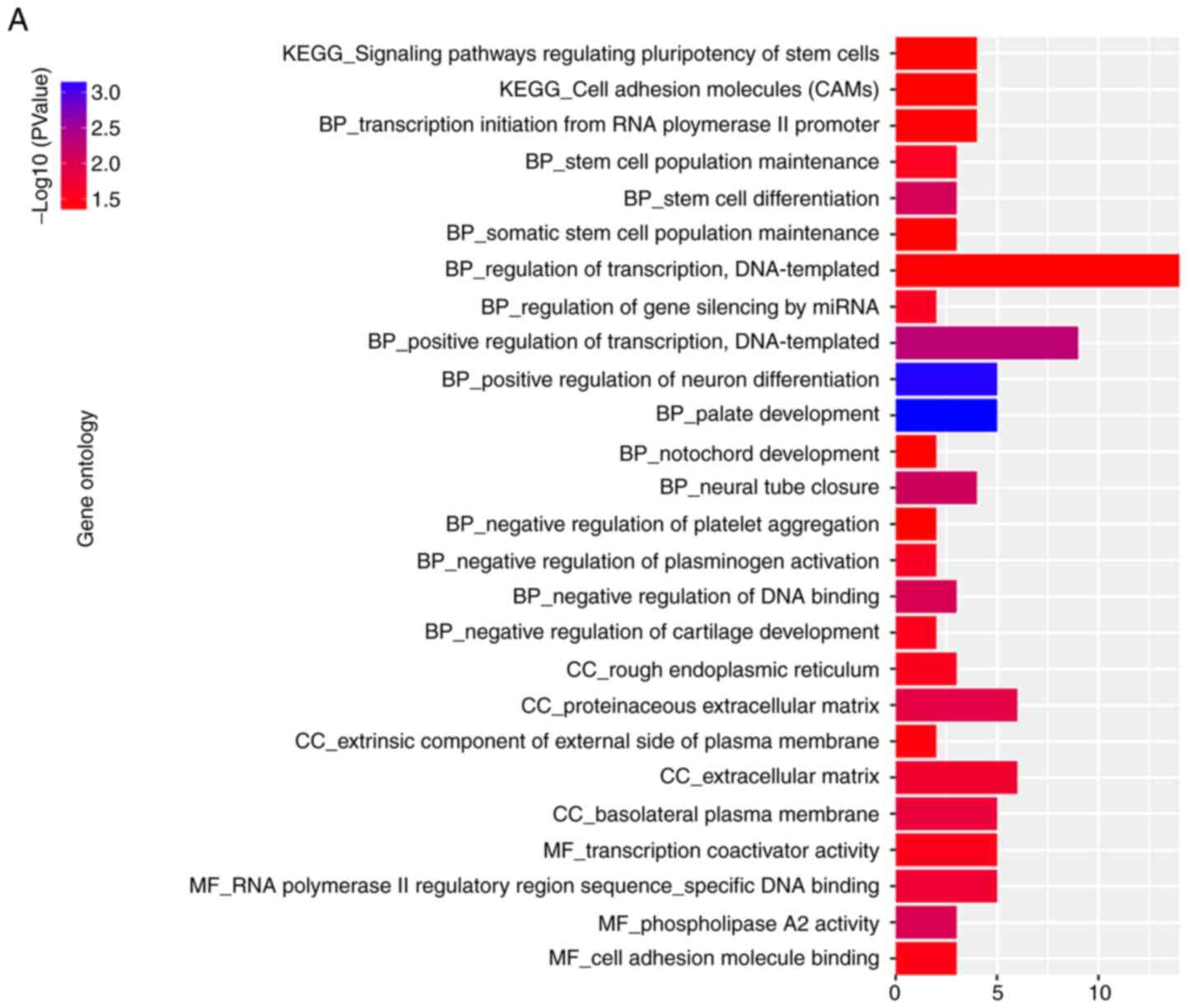|
1
|
Correa P: Gastric cancer: Overview.
Gastroenterol Clin North Am. 42:211–217. 2013. View Article : Google Scholar : PubMed/NCBI
|
|
2
|
Tsukanov VV, Butorin NN, Maady AS,
Shtygasheva OV, Amelchugova OS, Tonkikh JL, Fassan M and Rugge M:
Helicobacter pylori infection, intestinal metaplasia, and
gastric cancer risk in Eastern Siberia. Helicobacter. 16:107–112.
2011. View Article : Google Scholar : PubMed/NCBI
|
|
3
|
Chen W, Zheng R, Baade PD, Zhang S, Zeng
H, Bray F, Jemal A, Yu XQ and He J: Cancer statistics in China,
2015. CA Cancer J Clin. 66:115–132. 2016. View Article : Google Scholar : PubMed/NCBI
|
|
4
|
Song Z, Wu Y, Yang J, Yang D and Fang X:
Progress in the treatment of advanced gastric cancer. Tumour Biol.
39:10104283177146262017. View Article : Google Scholar : PubMed/NCBI
|
|
5
|
Sitarz R, Skierucha M, Mielko J, Offerhaus
GJA, Maciejewski R and Polkowski WP: Gastric cancer: Epidemiology,
prevention, classification, and treatment. Cancer Manag Res.
10:239–248. 2018. View Article : Google Scholar : PubMed/NCBI
|
|
6
|
Japanese Gastric Cancer Association:
Japanese gastric cancer treatment guidelines 2014 (ver. 4). Gastric
Cancer. 20:1–19. 2017. View Article : Google Scholar
|
|
7
|
Chon SH, Berlth F, Plum PS, Herbold T,
Alakus H, Kleinert R, Moenig SP, Bruns CJ, Hoelscher AH and Meyer
HJ: Gastric cancer treatment in the world: Germany. Transl
Gastroenterol Hepatol. 2:532017. View Article : Google Scholar : PubMed/NCBI
|
|
8
|
Kang CB, Hong Y, Dhe-Paganon S and Yoon
HS: FKBP family proteins: Immunophilins with versatile biological
functions. Neurosignals. 16:318–325. 2008. View Article : Google Scholar : PubMed/NCBI
|
|
9
|
Coss MC, Winterstein D, Sowder RC II and
Simek SL: Molecular cloning, DNA sequence analysis, and biochemical
characterization of a novel 65-kDa FK506-binding protein (FKBP65).
J Biol Chem. 270:29336–29341. 1995. View Article : Google Scholar : PubMed/NCBI
|
|
10
|
Patterson CE, Schaub T, Coleman EJ and
Davis EC: Developmental regulation of FKBP65. An ER-localized
extracellular matrix binding-protein. Mol Biol Cell. 11:3925–3935.
2000. View Article : Google Scholar : PubMed/NCBI
|
|
11
|
Ishikawa Y, Vranka J, Wirz J, Nagata K and
Bachinger HP: The rough endoplasmic reticulum-resident
FK506-binding protein FKBP65 is a molecular chaperone that
interacts with collagens. J Biol Chem. 283:31584–31590. 2008.
View Article : Google Scholar : PubMed/NCBI
|
|
12
|
Staab-Weijnitz CA, Fernandez IE, Knüppel
L, Maul J, Heinzelmann K, Juan-Guardela BM, Hennen E, Preissler G,
Winter H, Neurohr C, et al: FK506-binding protein 10, a potential
novel drug target for idiopathic pulmonary fibrosis. Am J Respir
Crit Care Med. 192:455–467. 2015. View Article : Google Scholar : PubMed/NCBI
|
|
13
|
Knüppel L, Heinzelmann K, Lindner M, Hatz
R, Behr J, Eickelberg O and Staab-Weijnitz CA: FK506-binding
protein 10 (FKBP10) regulates lung fibroblast migration via
collagen VI synthesis. Respir Res. 19:672018. View Article : Google Scholar : PubMed/NCBI
|
|
14
|
Solassol J, Mange A and Maudelonde T: FKBP
family proteins as promising new biomarkers for cancer. Curr Opin
Pharmacol. 11:320–325. 2011. View Article : Google Scholar : PubMed/NCBI
|
|
15
|
Yao YL, Liang YC, Huang HH and Yang WM:
FKBPs in chromatin modification and cancer. Curr Opin Pharmacol.
11:301–307. 2011. View Article : Google Scholar : PubMed/NCBI
|
|
16
|
Quinn MC, Wojnarowicz PM, Pickett A,
Provencher DM, Mes-Masson AM, Davis EC and Tonin PN: FKBP10/FKBP65
expression in high-grade ovarian serous carcinoma and its
association with patient outcome. Int J Oncol. 42:912–920. 2013.
View Article : Google Scholar : PubMed/NCBI
|
|
17
|
Henriksen R, Sørensen FB, Ørntoft TF and
Birkenkamp-Demtroder K: Expression of FK506 binding protein 65
(FKBP65) is decreased in epithelial ovarian cancer cells compared
to benign tumor cells and to ovarian epithelium. Tumour Biol.
32:671–676. 2011. View Article : Google Scholar : PubMed/NCBI
|
|
18
|
Ramadori G, Konstantinidou G,
Venkateswaran N, Biscotti T, Morlock L, Galié M, Williams NS,
Luchetti M, Santinelli A, Scaglioni PP and Coppari R: Diet-induced
unresolved ER stress hinders KRAS-driven lung tumorigenesis. Cell
Metab. 21:117–125. 2015. View Article : Google Scholar : PubMed/NCBI
|
|
19
|
Paulo P, Ribeiro FR, Santos J, Mesquita D,
Almeida M, Barros-Silva JD, Itkonen H, Henrique R, Jerónimo C,
Sveen A, et al: Molecular subtyping of primary prostate cancer
reveals specific and shared target genes of different ETS
rearrangements. Neoplasia. 14:600–611. 2012. View Article : Google Scholar : PubMed/NCBI
|
|
20
|
Sun Z, Dong J, Zhang S, Hu Z, Cheng K, Li
K, Xu B, Ye M, Nie Y, Fan D and Zou H: Identification of
chemoresistance-related cell-surface glycoproteins in leukemia
cells and functional validation of candidate glycoproteins. J
Proteome Res. 13:1593–1601. 2014. View Article : Google Scholar : PubMed/NCBI
|
|
21
|
Ge Y, Xu A, Zhang M, Xiong H, Fang L,
Zhang X, Liu C and Wu S: FK506 binding protein 10 is overexpressed
and promotes renal cell carcinoma. Urol Int. 98:169–176. 2017.
View Article : Google Scholar : PubMed/NCBI
|
|
22
|
Olesen SH, Christensen LL, Sørensen FB,
Cabezón T, Laurberg S, Orntoft TF and Birkenkamp-Demtröder K: Human
FK506 binding protein 65 is associated with colorectal cancer. Mol
Cell Proteomics. 4:534–544. 2005. View Article : Google Scholar : PubMed/NCBI
|
|
23
|
Wu JG, Wang JJ, Jiang X, Lan JP, He XJ,
Wang HJ, Ma YY, Xia YJ, Ru GQ, Ma J, et al: MiR-125b promotes cell
migration and invasion by targeting PPP1CA-Rb signal pathways in
gastric cancer, resulting in a poor prognosis. Gastric Cancer.
18:729–739. 2015. View Article : Google Scholar : PubMed/NCBI
|
|
24
|
Imaoka H, Toiyama Y, Okigami M, Yasuda H,
Saigusa S, Ohi M, Tanaka K, Inoue Y, Mohri Y and Kusunoki M:
Circulating microRNA-203 predicts metastases, early recurrence, and
poor prognosis in human gastric cancer. Gastric Cancer. 19:744–753.
2016. View Article : Google Scholar : PubMed/NCBI
|
|
25
|
Liang M, Shi B, Liu J, He L, Yi G, Zhou L,
Yu G and Zhou X: Downregulation of miR203 induces overexpression of
PIK3CA and predicts poor prognosis of gastric cancer patients. Drug
Des Devel Ther. 9:3607–3616. 2015.PubMed/NCBI
|
|
26
|
Leek JT, Johnson WE, Parker HS, Fertig EJ,
Jaffe AE, Storey JD, Zhang Y and Torres LC: sva: Surrogate variable
analysis. R package version 3.32.1. 2019.
|
|
27
|
Huang WY, Hsu SD, Huang HY, Sun YM, Chou
CH, Weng SL and Huang HD: MethHC: A database of DNA methylation and
gene expression in human cancer. Nucleic Acids Res. 43:D856–D861.
2015. View Article : Google Scholar : PubMed/NCBI
|
|
28
|
Tang Z, Li C, Kang B, Gao G, Li C and
Zhang Z: GEPIA: A web server for cancer and normal gene expression
profiling and interactive analyses. Nucleic Acids Res. 45:W98–W102.
2017. View Article : Google Scholar : PubMed/NCBI
|
|
29
|
Szász AM, Lánczky A, Nagy Á, Förster S,
Hark K, Green JE, Boussioutas A, Busuttil R, Szabó A and Győrffy B:
Cross-validation of survival associated biomarkers in gastric
cancer using transcriptomic data of 1,065 patients. Oncotarget.
7:49322–49333. 2016. View Article : Google Scholar : PubMed/NCBI
|
|
30
|
Uhlén M, Fagerberg L, Hallström BM,
Lindskog C, Oksvold P, Mardinoglu A, Sivertsson Å, Kampf C,
Sjöstedt E, Asplund A, et al: Proteomics. Tissue-based map of the
human proteome. Science. 347:12604192015. View Article : Google Scholar : PubMed/NCBI
|
|
31
|
Yang S, Kim CY, Hwang S, Kim E, Kim H,
Shim H and Lee I: COEXPEDIA: Exploring biomedical hypotheses via
co-expressions associated with medical subject headings (MeSH).
Nucleic Acids Res. 45:D389–D396. 2017. View Article : Google Scholar : PubMed/NCBI
|
|
32
|
Romano S, D'Angelillo A and Romano MF:
Pleiotropic roles in cancer biology for multifaceted proteins
FKBPs. Biochim Biophys Acta. 1850:2061–2068. 2015. View Article : Google Scholar : PubMed/NCBI
|
|
33
|
Christiansen HE, Schwarze U, Pyott SM,
AlSwaid A, Al Balwi M, Alrasheed S, Pepin MG, Weis MA, Eyre DR and
Byers PH: Homozygosity for a missense mutation in SERPINH1, which
encodes the collagen chaperone protein HSP47, results in severe
recessive osteogenesis imperfecta. Am J Hum Genet. 86:389–398.
2010. View Article : Google Scholar : PubMed/NCBI
|
|
34
|
Essawi O, Symoens S, Fannana M, Darwish M,
Farraj M, Willaert A, Essawi T, Callewaert B, De Paepe A, Malfait F
and Coucke PJ: Genetic analysis of osteogenesis imperfecta in the
Palestinian population: Molecular screening of 49 affected
families. Mol Genet Genomic Med. 6:15–26. 2018. View Article : Google Scholar : PubMed/NCBI
|
|
35
|
Chen Y, Terajima M, Banerjee P, Guo H, Liu
X, Yu J, Yamauchi M and Kurie JM: FKBP65-dependent peptidyl-prolyl
isomerase activity potentiates the lysyl hydroxylase 2-driven
collagen cross-link switch. Sci Rep. 7:460212017. View Article : Google Scholar : PubMed/NCBI
|
|
36
|
Gjaltema RA, van der Stoel MM, Boersema M
and Bank RA: Disentangling mechanisms involved in collagen
pyridinoline cross-linking: The immunophilin FKBP65 is critical for
dimerization of lysyl hydroxylase 2. Proc Natl Acad Sci USA.
113:7142–7147. 2016. View Article : Google Scholar : PubMed/NCBI
|
|
37
|
Duran I, Martin JH, Weis MA, Krejci P,
Konik P, Li B, Alanay Y, Lietman C, Lee B, Eyre D, et al: A
chaperone complex formed by HSP47, FKBP65, and BiP modulates
telopeptide Lysyl hydroxylation of type I procollagen. J Bone Miner
Res. 32:1309–1319. 2017. View Article : Google Scholar : PubMed/NCBI
|
|
38
|
Vollmann EH, Cao L, Amatucci A, Reynolds
T, Hamann S, Dalkilic-Liddle I, Cameron TO, Hossbach M, Kauffman
KJ, Mir FF, et al: Identification of novel fibrosis modifiers by in
vivo siRNA silencing. Mol Ther Nucleic Acids. 7:314–323. 2017.
View Article : Google Scholar : PubMed/NCBI
|
|
39
|
Hagedorn M, Siegfried G, Hooks KB and
Khatib AM: Integration of zebrafish fin regeneration genes with
expression data of human tumors in silico uncovers potential novel
melanoma markers. Oncotarget. 7:71567–71579. 2016. View Article : Google Scholar : PubMed/NCBI
|
|
40
|
Rahim S, Minas T, Hong SH, Justvig S,
Celik H, Kont YS, Han J, Kallarakal AT, Kong Y, Rudek MA, et al: A
small molecule inhibitor of ETV1, YK-4-279, prevents prostate
cancer growth and metastasis in a mouse xenograft model. PLoS One.
9:e1142602014. View Article : Google Scholar : PubMed/NCBI
|
|
41
|
Heard ME, Besio R, Weis M, Rai J, Hudson
DM, Dimori M, Zimmerman SM, Kamykowski JA, Hogue WR, Swain FL, et
al: Sc65-Null mice provide evidence for a novel endoplasmic
reticulum complex regulating collagen Lysyl hydroxylation. PLoS
Genet. 12:e10060022016. View Article : Google Scholar : PubMed/NCBI
|















